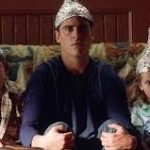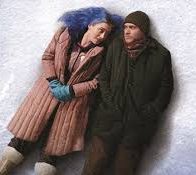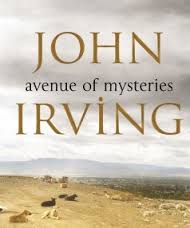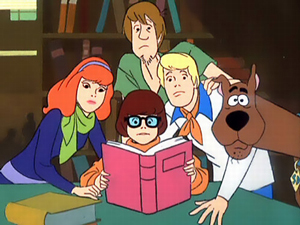The Intersection of Character Transformation and Moral Dilemma
The protagonist’s transformational journey is highlighted in countless stories, whether novels, movies, or plays. If you take time to examine some of your favorite stories, you should be able to identify key scenes or moments in which this transformation gradually takes place. It’s the events that transpire that erode the persona and emphasize to the character that living in that identity isn’t working.
People don’t change overnight; it’s a process. And when we write a story, we want that process to be believable. While there are six stages in the process, you might have a dozen or more scenes in which your character’s beliefs, opinions, and biases are challenged, one bit at a time.
What Theme Really Is
Keep in mind this truth: the theme of your story is your character’s inner motivation made universal. What drives him, what plagues him, what consumes him is what propels him toward the visible goal.
These key transformational scenes with your protagonist are the ones that will shine a light on the themes of your story.
Consider the movie Hostiles, which I explored in another post. The title itself implies the theme and poses the moral dilemma Capt. Blocker faces. Who truly is the hostile?
The question Blocker asks himself, essentially, is this: “How am I all that different from those I hate?” In asking that question, consciously or subconsciously, the theme is brought to the forefront.
When considering theme, look for the moral dilemma your character is facing. That’s where you’ll find your universal themes.
Consider the movie Signs. It’s a brilliant character story, and though the apparent plot concerns aliens invading Earth, that is really only a backdrop to the real story. The aliens are an interesting element that create an intriguing plot situation, but this story about an angry, grieving, former priest who is railing against God could be set in countless situations.
 Here is the perfect example of a concept with a kicker—an “ordinary” story about a man who’s lost his wife and is trying to deal with the pain set in an extraordinary circumstance. At the start, we see Graham Hess struggling to deal with life. His wife was killed in a car accident, his son Morgan is suffering from asthma, and he’s floundering, trying to get through each day, his anger at God simmering under the surface. His persona isn’t helping him at all to cope.
Here is the perfect example of a concept with a kicker—an “ordinary” story about a man who’s lost his wife and is trying to deal with the pain set in an extraordinary circumstance. At the start, we see Graham Hess struggling to deal with life. His wife was killed in a car accident, his son Morgan is suffering from asthma, and he’s floundering, trying to get through each day, his anger at God simmering under the surface. His persona isn’t helping him at all to cope.
When the aliens arrive, we see Graham speaking to his younger brother, Merrill, about his faith. He says “there are two kinds of people: those who see signs, miracles, and those who see coincidences. Which kind are you?” This highlights the theme (and movie title) of the story. Will Graham continue to believe that there is no purpose at all to life, that everything is random, an accident? Or will he come to believe that everything that happens does so for a purpose, in a world of signs and miracles?
In the events that follow, we begin piecing the backstory together of his wife’s accident, leading to the reveal of the strange things she tells Graham right before she dies. Graham brushes it off as her mind going, but by the climax of the movie, he begins to accept that maybe everything she told him was divinely directed—so that he can save his family—and not just his son but his very soul.
One of the most powerful scenes I’ve ever seen in a movie is the one in which Graham is having dinner with his brother and kids after the aliens have landed. Graham believes the end is near, and this is the last meal they’ll ever have. In this build to the climax, this is his dark moment, when his anger at God explodes in a palpably painful diatribe. He is fighting the emergence of his essence.
In the climax, Graham’s faith is tested, and he must make that leap from persona to essence in order to survive both spiritually and literally. The MDQs (major dramatic queries) are both resolved: Will Graham defeat the aliens and save his family? Will Graham save his very soul by accepting the hard ways of God and trust Him that all works out for the good of those who love Him?
It raises an unspoken question: if his wife hadn’t died, would they all have perished in the alien attack? In the end, we see Graham fully in his essence, having embraced the truths he needed to face down in order to fully “arrive.” He is once more a priest. He is fully connected to his family. He has accepted his place in the world and come to terms with his life
 Consider the movie Eternal Sunshine of the Spotless Mind. Joel Barish is miserable, but he doesn’t know why. In this creatively structured story, we learn that Joel’s love of his life, Clementine, hired a company to erase all memories of him from her mind. Unable to bear the pain of this rejection, he chooses to undergo the same treatment, so he’ll forget her.
Consider the movie Eternal Sunshine of the Spotless Mind. Joel Barish is miserable, but he doesn’t know why. In this creatively structured story, we learn that Joel’s love of his life, Clementine, hired a company to erase all memories of him from her mind. Unable to bear the pain of this rejection, he chooses to undergo the same treatment, so he’ll forget her.
This lie he believes—that’s it’s better to erase memories of love rather than suffer the pain of loss—proves false as Joel begins to understand that your memories make you who you are. In a desperate attempt to save a shred of memory of Clementine, Joel engages in a macabre cat-and-mouse chase as the technicians try to seek and destroy the memories Joel races to hide.
In the end, he grasps firm the belief that it is better to work through the pain and heartache in a relationship than to abandon it entirely. The “sunshine” of a spotless mind is an illusion. It promises a life that is empty and meaningless. The big theme of this story—that with love comes pain, and we must be willing to take the pain (’tis better to have loved and lost than to never have loved at all—Tennyson—and “Blessed are the forgetful”—Nietzsche)—is showcased in Joel’s transformational journey.
In the end, after his arduous trek toward truth, he comes into his essence, discarding his useless beliefs about love and relationships and moves forward with a mature and wiser perspective on life.
Character Change May Be Subtle
In the movie Dave, Dave, who poses as the president, is an honorable guy from the start. He doesn’t have a big character arc, but because of this journey he goes on, impersonating the president and seeing the true situation in the White House, he makes the choice to give up the power and prestige and, yes, his ability to effect good change for the country with noble ideals, in order to come fully into his essence, into who he honestly is.
He cannot keep living a lie, however much good he is able to do as president. By the end of the movie Dave has gained a confidence and passion to help others even more, with a deep belief and understanding of how just one person can make a world of difference.
Many writers just wing it when it comes to character arc, but to have a strong story, our protagonist needs to change not only in believable ways but in specific ways at specific points in our story. There are six key moments of character change that align with the five turning points in a story.
Want to learn more? Take my online course The 10 Key Scenes That Frame Up Your Novel. Some of your ten key scenes need to include a specific character change in your protagonist, and this is clearly explained in the course (you have lifetime access to these videos, and the handouts will help you immensely to craft a masterful character arc for your protagonist!).
Stories with profound character change move readers. Does your story have this?











